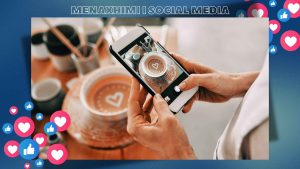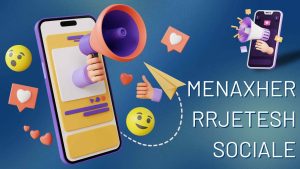Social media addiction
Social media addiction is an emotional or psychological dependency that a person may have on viewing and using social media in an uncontrolled manner. Often, this addiction is not recognized by people, spending more than 4 hours a day on their social media.
How does social media affect your brain?
Because of the effect it has on the brain, social media create both emotional and psychological addiction. According to a recent study from Harvard University, the use of social media activates the same part of the brain that also lights up when taking a narcotic substance. The reward area in the brain and its chemical messenger pathways influence decisions and feelings. When someone experiences something rewarding or uses a narcotic substance, neurons in the brain's main dopamine-producing areas are activated, and dopamine levels increase. So, when you're scrolling or watching different videos on social media, your brain interprets it as a positive signal, as if something good is happening to you. As a result, you continue to use them uncontrollably for long hours.
Recognizing a social media addiction
Although many people use social media regularly, very few are truly addicted. To determine if you're at risk of developing a social media addiction, ask yourself these 6 questions:
- Do you spend a lot of time thinking about social media or planning to use social media?
- Do you feel an urge to use social media more and more?
- Do you use social media to forget about personal problems?
- Do you often try to reduce your social media use but without success?
- Do you become anxious if you're unable to use social media?
- Do you use social media so much that it has negatively impacted your work or studies?
- Do you use social media before going to sleep?
- Do you use social media in the first few minutes after waking up?
"Yes" to more than 3 of these questions may indicate the presence of a social media addiction.
The consequences of addiction to social networks
You might notice it at work or school when you're trying to focus on an important task, such as completing an assignment or a critical job, but at the same time, you're thinking about a video you saw earlier on social media. This indicates that you have trouble focusing. Lack of focus is a major issue for many individuals, and social media is a key contributor to this.
How can we prevent social media addiction from affecting our lives?
A digital detox is a set period of time during which you significantly reduce the use of your phone and other electronic devices. This involves several simple steps that require a lot of determination.
- You should not use social media for more than one hour a day.
- Try to replace the time you spend on social media with something productive for your health.
- Social media provides you with unfiltered information, try to replace it with valuable information for your life, such as reading a book or following a training.
- Use a limiter on your cell phone that will remind you if you spend more than an hour on social media.
- Try not to let your cell phone distract you with useless notifications that will push you to waste your time.




